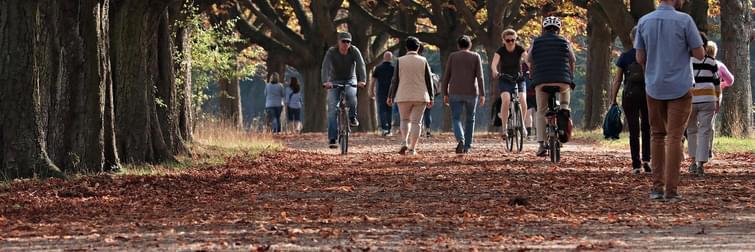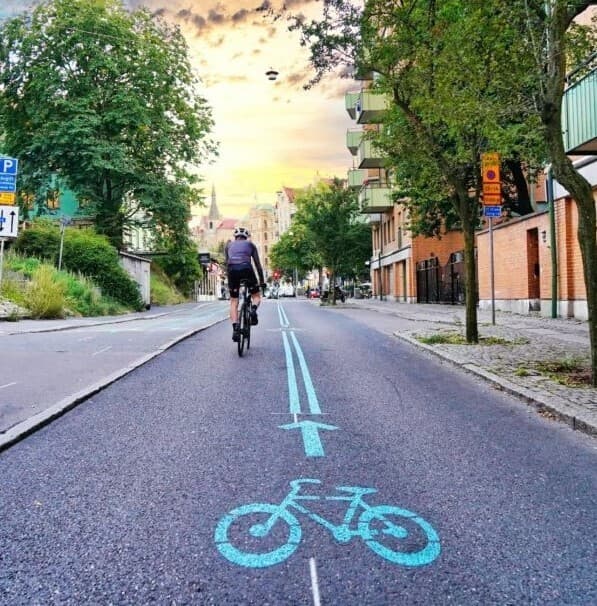
blog: Reject doom-ism. Climate action is as much about stronger communities as it is about emissions
Monday 15th May 2023
“Climate change”...how do these words make you feel?
Do they turn you off? Do you feel angry? Do you feel hopeful? Do you feel scared?
Within the transport planning profession, and wider society, there currently appear to be two dominant attitudes:
Both of these attitudes delay climate action, for reasons covered by this excellent paper: Discourses of Climate Delay. And both of these attitudes prevent us reaching for more ambitious solutions that reduce emissions and make our lives healthier, more prosperous and less stressful. These more imaginative solutions deliver climate action by improving our society. And I think we all appreciate that our society (and economy) need some radical ideas to drive renewal.
Within the transport world, such cross-cutting solutions include:
- Reforming local streets into places to meet and play – thereby encouraging community cohesion and reducing loneliness
- Reallocation of road space to encourage healthier walking and cycling, including the planting of cooling trees
- Providing public transport as a public good that is desired by rich and poor, thereby increasing job accessibility for all, including the poorest
- Retrofitting suburbs to include essential shops and space for community activities – to reduce the need to travel and enabling local support for families and the elderly

This might sound idealistic - you might say, “at the end of the day people just need cars to get from home to work”. But for what? To live increasingly overburdened, fragile, and lonely lives? We are becoming more disconnected as a society:
Resilience to climate impacts such as heatwaves, flooding and food shortages depend on strong communities. In the Chicago heatwave of 1995 over 700 elderly residents died. Eric Klingenberg’s research found that residents were 10 times more likely to die if they lived in an area with little community spirit, where residents were too scared to ask their neighbours for help. Responses to the Covid-19 pandemic and the cost-of living crisis has also shown the power of communities.
As we face multiple crises, we need to think holistically.
The restricted way in which we think about climate solutions is more common in high-income countries. As part of ITP’s study to identify transport decarbonisation pathways in Central Asia, we reviewed the climate polices of low-, middle- and high-income countries using the Avoid, Shift, Improve framework.
Our review found greater ambition among low- and middle-income countries for urban policies that help to localise activity and enable greater use of public transport and NMT (Avoid and Shift) (e.g. Bangladesh, Columbia, Costa Rica). While the climate policies of high-income countries tend to be narrowly focused upon zero-emission vehicles (Improve).
My argument therefore is that to we need to think more broadly about climate action. We need to change our frame of thinking away from climate action being all about technology and high cost, to make it an opportunity to fix multiple problems – jobs, community, housing. Indeed, the MP Chris Skidmore’s recent review of the government’s Net Zero strategy shows that the economic opportunity of acting early on climate far outweigh the costs. So let’s stop the doom-ism and start using climate action to create the society and economy we deserve.
